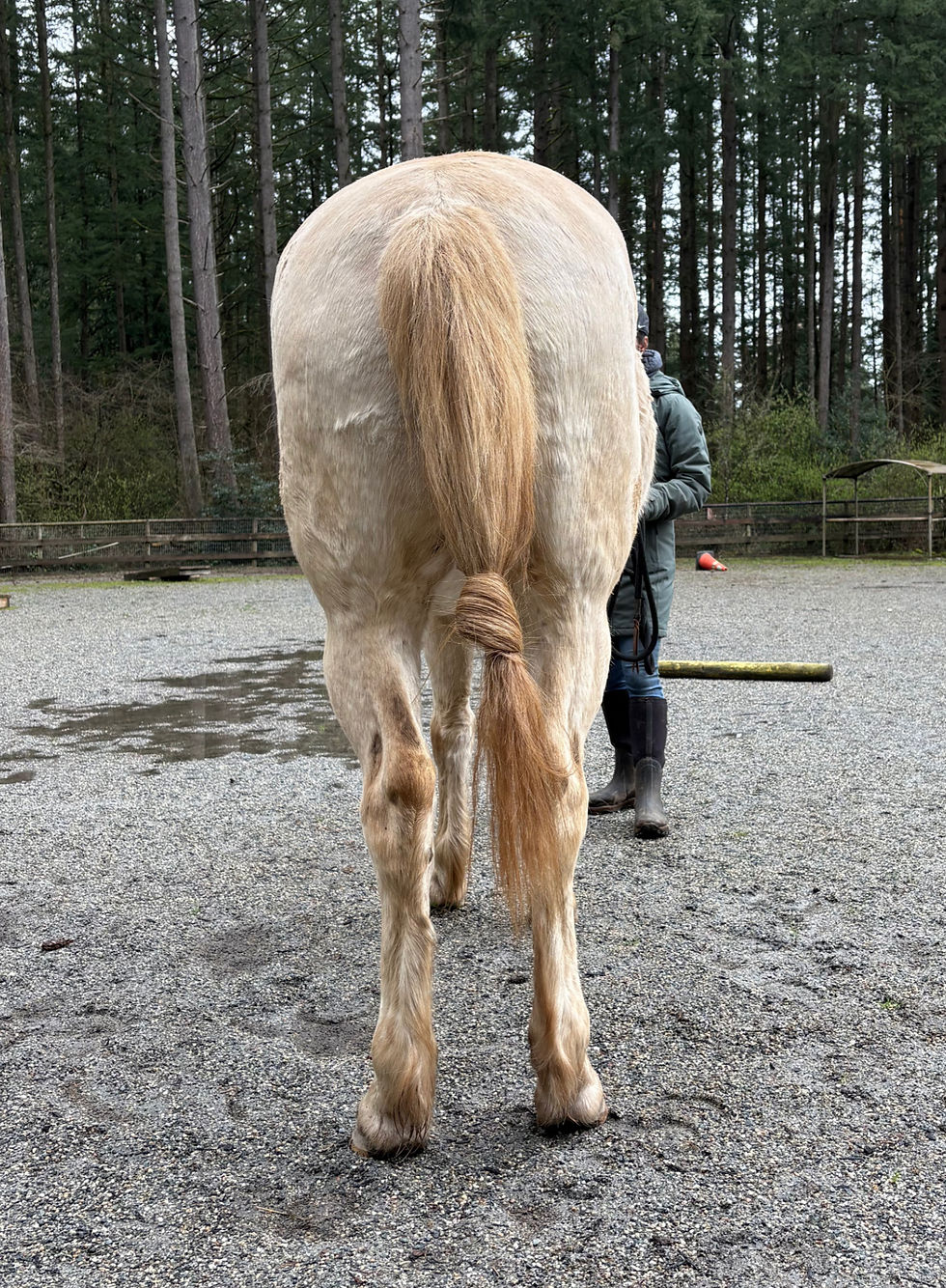Why Is Play Crucial for Horse Development? Unveiling the Neuroscientific Evidence.
- Elisse Miki

- Mar 23, 2024
- 3 min read
Updated: May 26
In the equestrian world, the significance of play for horses often takes a backseat to more structured training and exercise routines. However, emerging research in neuroscience suggests that play is not just a frivolous activity but a crucial component for the holistic development of equine mental and physical health.
By delving into the neuroscientific underpinnings of play in horses and drawing parallels with human studies, we can unravel the profound importance of allowing our equine companions the freedom to engage in playful behaviors.
The Neuroscience of Play in Horses
Neuroscientists have long been fascinated by the neurological mechanisms underlying play behavior in various species, including horses. A seminal study by VanDierendonck (2012) explored the neural correlates of playfulness in equines, revealing that play activates specific brain regions associated with pleasure and reward. Moreover, play has been found to stimulate the release of neurotransmitters like dopamine and endorphins, contributing to a sense of well-being and stress reduction in horses (Padalino et al., 2014).
Cross-Referencing Human Studies
Interestingly, the neurological basis of play is not unique to horses but is a shared phenomenon across species, including humans. Research in developmental neuroscience has demonstrated that play serves as a crucial avenue for learning, socialization, and cognitive development in children (Pellis & Pellis, 2009). Similarly, studies utilizing functional magnetic resonance imaging (fMRI) have shown that play activities activate brain regions involved in emotional regulation and social bonding in humans (Gordon et al., 2019). These parallels underscore the evolutionary significance of play as a fundamental aspect of brain development across diverse species.
Implications for Equine Well-being
Understanding the neurological benefits of play has profound implications for equine welfare and management. Just as play promotes cognitive flexibility and social skills in humans, allowing horses to engage in playful behaviors fosters mental agility, emotional resilience, and social cohesion within equine groups (Kiley-Worthington, 2010). Moreover, research suggests that play contributes to the development of physical coordination, agility, and proprioception in youth development, laying the foundation for athletic ability and injury prevention in adulthood (Pellis & Pellis, 2017).
In Conclusion
In conclusion, the growing field of neuroscience provides compelling evidence for the importance of play in the lives of horses. By illuminating the neural mechanisms underlying play behavior and drawing parallels with human studies, we gain a deeper appreciation for the profound impact of play on equine development and well-being. As horse owners and therapists, it is compulsory that we prioritize and facilitate opportunities for play, recognizing it as an essential aspect of physical, mental, and social health.
Ready to Learn More?
Explore our Free Resources for tools you can use right away, dive into our Online Courses to deepen your knowledge, or join one of our Certification Programs to take your equine therapy practice to the next level.
References
Gordon, N. S., Burke, S., Akil, H., Watson, S. J., & Panksepp, J. (2019). Socially-induced brain ‘fertilization’: play promotes brain derived neurotrophic factor transcription in the amygdala and dorsolateral frontal cortex in juvenile rats. Neuroscience, 409, 80-97.
Kiley-Worthington, M. (2010). The importance of play in the horse’s life. The Natural Horse: Foundations for Natural Horsemanship, 97-130.
Pellis, S. M., & Pellis, V. C. (2009). Play fighting of rats in comparative perspective: a schema for neurobehavioral analyses. Neuroscience & Biobehavioral Reviews, 33(1), 108-118.
Pellis, S. M., & Pellis, V. C. (2017). Beyond the Evolutionary Paradox of Play. Trends in Ecology & Evolution, 32(8), 578-580.
Padalino B, Zaccagnino P, Celi P. The effect of different types of physical exercise on the behavioural and physiological parameters of standardbred horses housed in single stalls. Vet Med Int. 2014;2014:875051. doi: 10.1155/2014/875051. Epub 2014 Jan 22. PMID: 24587940; PMCID: PMC3920612.
VanDierendonck, M. C., & Spruijt, B. M. (2012). Coping in groups of domestic horses – review from a social and neurobiological perspective. Applied Animal Behaviour Science, 138(3–4), 194–202. https://doi.org/10.1016/j.applanim.2012.02.007






Comments